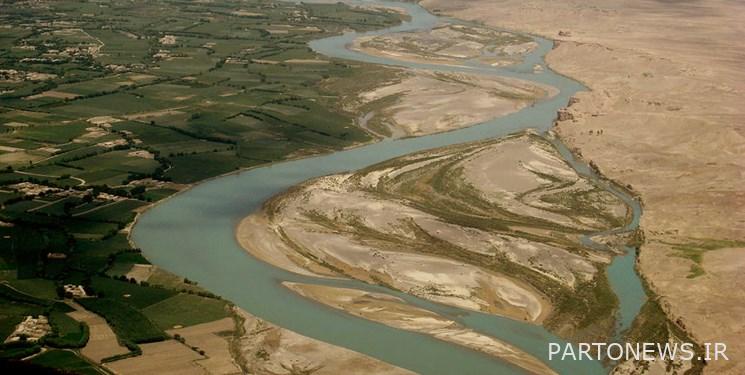Helmand Deputy Water Commissioner: Afghanistan to prove adherence to Helmand Treaty not in words but in deeds

Jabbar Vatan Fada, in an interview with Fars News Agency, while referring to the 25th meeting of the Joint Committee of Helmand Water Commissioners, said: In the current water year, less than 4 million cubic meters of water has entered the country from the 820 million cubic meters of water contained in the agreement.
The Director General of the Border Rivers and Joint Water Resources Office of the Ministry of Energy continued: “The non-delivery of Iran’s water rights occurs while the Afghan side claims to have paid Iran’s water rights, but this issue was strongly protested by the Iranian delegation at the meeting.”
Deputy Helmand Water Commissioner emphasized: The Iranian delegation, while strongly protesting against the statistics provided by the Afghan side regarding the current water year and the amount of water in our country, demands to visit and observe the measuring station upstream of Kajaki Dam based on the mechanism provided in the agreement. With the opposition of the Afghan side, it was not possible to access the information or review it jointly.
He added: “Since April 1400, Kamal Khan diversion dam in 70 km of the border of the Islamic Republic of Iran on the main riverbed of Helmand river in Nimroz province has been put into operation and the Afghan side in the current water year, about 950 million cubic meters of Helmand river water, if not Kamal Khan Dam flowed naturally and historically towards Hamoonha, Nimroz province and Sistan region and a part of Iran’s water supply was provided from it.
Watan Fada stated: This diversion dam has deprived Iran of its legal water rights, as well as the drying up of Hamoun International Wetlands and the occurrence of negative economic, social and environmental consequences in the region.
Deputy Helmand Water Commissioner of the Iranian side explained: While announcing strong protest against the current practice of the Afghan side in trampling on Iran’s legal water rights and diverting it to the Goodzareh salt, the Iranian Commissioner’s delegation expects Afghanistan to adhere to the 1351 Helmand Treaty not in words but Prove in practice.
According to Fars, the 25th meeting of the Joint Committee of Helmand Water Commissioners was held in Tehran from 25 to 27 June 1401, and the Iranian delegation strongly protested against the non-receipt of water fees to the Afghan side in the last two years.
End of message /
You can edit this post
Suggest this for the front page

